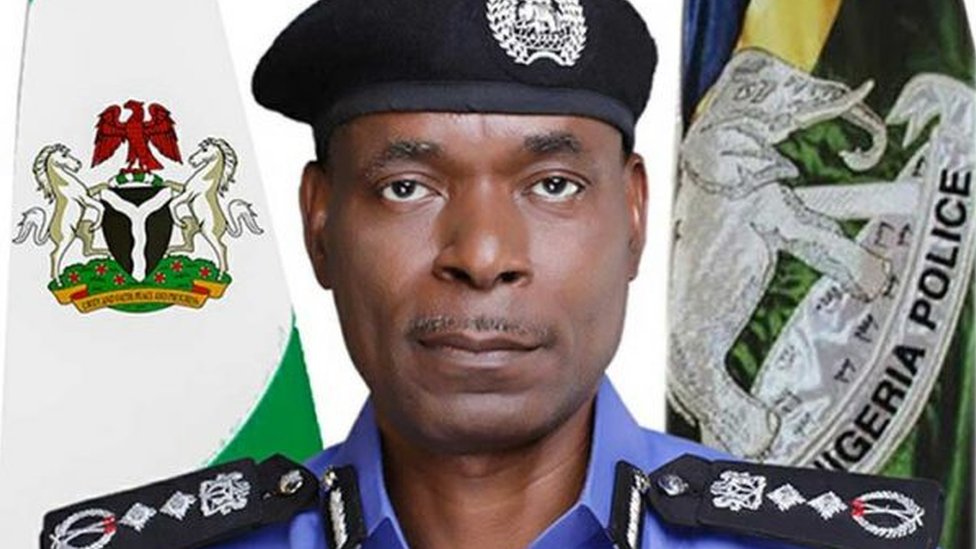“A tree breaks, that takes all the force of the wind.” African proverb
President Buhari has been stirred into what are, going by his standards, extraordinary activities by popular outrage at the activities of the Special Anti Robbery Squad (SARS). He had meetings with the Inspector-General of Police, decided to scrap SARS, reorganise the police around its mandate and committed to investigating its activities. The special broadcast over the agitations will resonate far beyond those in the streets and others who have long given up on the idea that President Buhari feels the slightest need to account to Nigerians. As we speak, however, these gestures appear only to spur the agitators and many other interests with their own designs and grievances against his administration.
It is quite likely that this administration will have to deal with one of the biggest crises to confront it in its more than six years. It now has to deal with an assortment of opposition that will confront it with a familiar dilemma that many leaders across the world had confronted. It is a crisis triggered by popular anger and driven by inept management resulting in more anger until it is resolved in a number of many possible ways, depending on the disposition of leaders and the strength of the resistance. It is particularly tragic that the very instrument that the Nigerian state will respond with is also the source of the grievance. The harder the police lean on protesters, the more it validates the original sin that it is basically anti-people and must be resisted with a stronger resolve. The administration can offer more concessions, but these are likely to feed the resistance even more. The plural nature of the interests taking on the administration will make it very difficult to negotiate a resolution that will bring these protests to an end. Stronger muscle by the state could tip the balance of sympathy against it even more dangerously, as other interests join in a feast on an administration that has been weakened.
- #EndSARS: Our call for full Police Reform remains, CAGG insists
- Buhari receives #EndSARSNow protesters letter from Gov Sanwo-Olu
It is not entirely academic to state that this crisis was avoidable. It is important to state this because the failure to deal with policing and security matters with a strong resolve by President Buhari under whose watch national security as a whole took a turn for the worse now makes it necessary to look for responses that address past failures and current challenges. This administration did not invent SARS. In fact, you could even credit it with some effort at improving its severely damaged image, although these efforts were largely cosmetic. Nor should it take the blame for armed robbery, cultism, fraud and all manner of crimes that sucked in an already compromised police institution into the type of muck that make it impossible to tell the criminal from the law enforcer. SARS was the response of choice in communities that had paid huge prices for lawlessness and criminality. Over the years, its tactics became less about good policing and more about achieving results at all costs. In a nation with poor measuring mechanisms, it has always been difficult to evaluate SARS in terms of its mandate. But it was relatively easy to finger it for setting its own standards, operating with shocking levels of impunity and the impression that the citizen and communities as a whole must pay for the existence of criminals, particularly those criminals that showed no mercy or remorse for hurting the innocent.
The truth, however, is that SARS is a microcosm of the Nigeria Police, and it makes no sense to speak about reorganising the police to handle the original and legitimate mandate of SARS. It is important to remind the nation that it has one and only one federal police with roughly 450,000 men and women serving 200 million people. It is poorly trained, poorly remunerated, burdened by corruption and facing a formidable array of criminals who see the police as basically competitors for the benefits of crime, and an indifferent or hostile citizenry that had never believed that the police was its best friend. The policemen and women who will replace SARS personnel will be pooled from the same police, and former SARS operatives will be redeployed into a police force to disappear and place their experiences and mindsets at their own service, narrowing the margin between police and the criminal.
These protests will demand a lot more than President Buhari is offering. They will demand the heads of the leadership of the police and more heads of people that are failing to protect the nation. Worse, they are opening up new sources of worry in the misfortunes of communities in mostly northern part of the country who had, in bits and pieces, demanded that President Buhari protected them, particularly in his own home state. The protests, and the reactions of the government to them so far open up deep wounds and they will have different champions in the north to demand higher levels of concern and action against the Boko Haram insurgency, run-away banditry and kidnapping. To ignore northern demands for more decisive action against the bloodletting in many communities will bring out into streets people with little tradition for protesting against power, but it will be unwise to downplay the feelings of a people who were resigning to being locked out until they see a door ajar.
This is the time when President Buhari should act with some decisiveness and wisdom. There are many interests escorting this campaign and protests, and they have smelt blood. Many of these interests have a patently political agenda, and all of them target additional damage to the image and credibility of President Buhari’s administration. His choices in response are severely limited. He needs bold moves to remove the steam from these protests and show the degree to which he understands the fury behind genuine anger and mischief from opportunists. First, he must now accept that the people he had trusted to defend and protect the Nigerian citizen and nation have proved incapable, so he should replace them with others who show a promise to do better. In this instance, it will be difficult to make a good case for the exclusion of the IGP among Service Chiefs who should be relieved of their jobs. Second, the president should set up a judicial panel to investigate operations and complaints against SARS. Three, he should set up a high-powered and inclusive committee to advise on improving the effectiveness and standards of professionalism, particularly accountability, of the police.
Four, he should accept to work with the National Assembly and citizens to examine the utility of amending the constitution to provide for state police, and how these should work with appropriate standards to serve and protect Nigerians. Five, he should reorganise all government agencies and their operations to make improvements in their impact on youth unemployment. Six, he should bring the ASUU strike to an end immediately and assist tertiary institutions with what they need to resume teaching in the next few weeks. Seven, he should create a forum, which will include governors, traditional rulers, policing and security agencies, civil society and other persons with experience and insights into security to advise on how banditry and kidnappings in the North should be brought to an end. Eight, he should change his tendency to create unhealthy distance between him and the horrific conditions under which many communities live. He has to cultivate higher levels of empathy and sympathy for the plight of the citizen who suffer because the people he has trusted to serve and protect them have failed to do so. Nine, he should re-visit his standards of accountability and responsibility to the Nigerian people. He cannot continue to govern through people he has entrusted with massive responsibility who are failing him and the nation but stay on the job because he thinks his responsibility stops at their appointments only.
It is very important that President Buhari does not play further into the hands of these protests. This is an opportunity for him to overhaul his government sufficiently to kill the fire that will rage even more fiercely, as well as address genuine grievances. There are too many jolly riders in his administration, and he is poorly served by the lack of quality advice on politics and governance. There are interests in the protesting multitudes that want to see an even weaker Nigerian state so that criminality can stretch its legs. What is needed to defeat them is clear-headed thinking and not more force against the protests.

 Join Daily Trust WhatsApp Community For Quick Access To News and Happenings Around You.
Join Daily Trust WhatsApp Community For Quick Access To News and Happenings Around You.


